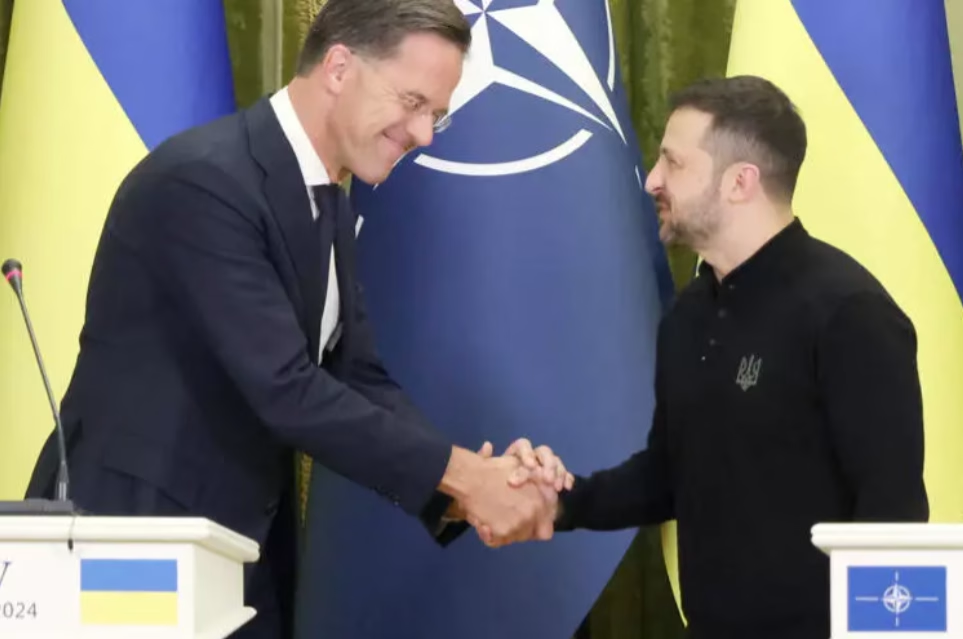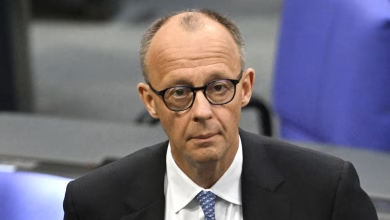In a significant display of solidarity with Ukraine, NATO Secretary General Rutte visited Kyiv for his inaugural trip in his new role. During a joint media briefing, Ukrainian President Zelensky expressed frustration over the slow pace of Western support, particularly regarding long-range weaponry essential for countering the Russian invasion. He urged NATO members to take decisive action by intercepting Russian missiles and drones targeting Ukraine.
Kyiv heavily relies on substantial military aid from Western nations to fend off Russian aggression, and Rutte’s presence serves as a crucial endorsement of Ukraine’s position on the global stage. He emphasized that his choice of Kyiv for this initial visit was to unequivocally convey NATO’s unwavering support, stating, “It is my priority and my privilege to take this support forward… working with you to ensure that Ukraine prevails.”
Zelensky reiterated the critical importance of Western aid, arguing that Ukraine’s chances of winning the war hinge on it. However, he voiced concern about the delays in the delivery of military shipments and the restrictions imposed on Ukraine’s military capabilities. “We need sufficient quantity and quality of weapons, including long-range weapons, that, in my opinion, our partners are already dragging out,” he said alongside Rutte on Thursday.
Ukrainian President Zelensky urged NATO members to play a more proactive role in assisting Ukraine in countering Russian aerial assaults. “We will continue to convince our partners of the need to shoot down Russian missiles and drones,” he stated, acknowledging the challenges of this request, noting that “they are not ready yet.”
Rutte, who assumed the NATO secretary-general position on Tuesday, steps into this role during a critical juncture marked by Russia’s advances on the battlefield, China’s rising influence, and the imminent U.S. elections. The Dutch government has been one of Ukraine’s staunchest supporters in Europe, advocating for the provision of advanced F-16 fighter jets to bolster Kyiv’s defenses.
Having served as prime minister during the tragic downing of Malaysia Airlines flight MH17 over Ukraine in 2014, which resulted in the deaths of 298 individuals, predominantly Dutch, Rutte expressed that the incident significantly altered his perspective. It reinforced his commitment to support Ukraine, stating, “for their security and ours.”
In addition to calls for the downing of Russian missiles and drones, Ukraine is also pressing the United States to permit the use of Western-supplied missiles to target military installations within Russia. However, Washington has been cautious in its response, wary of potential escalation, and has hesitated to grant this request.
Ukraine is entering a critical period, facing what may be its toughest winter on the battlefield. Russian forces have been steadily advancing in the east throughout 2024, with a particular focus on capturing the strategic logistics hub of Pokrovsk.
With Russian troops now less than 10 kilometers (about six miles) from the city, its capture could significantly disrupt Ukrainian supply lines and defensive positions in the Donetsk region. The urgency of the situation is heightened by ongoing Russian strikes, which have severely damaged Ukraine’s energy infrastructure, leading to the destruction of much of its generating capacity.
As a result, Ukraine is preparing for widespread blackouts that could leave millions without power, heating, or hot water during frigid winter temperatures. This dire energy situation adds another layer of complexity to an already challenging military landscape.
Furthermore, the potential return of aid-skeptic Donald Trump to the White House raises concerns about the future of U.S. support for Ukraine in its ongoing conflict with Russia. Such uncertainty could affect Ukraine’s ability to sustain its defense efforts in the face of increasing challenges.

